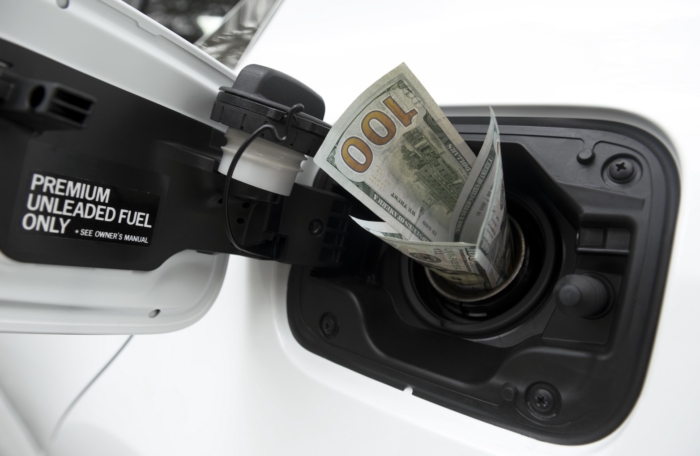A gas tax holiday is just a holiday from reality
Rising gas prices have prompted calls for a state gas tax holiday. Though a gas tax holiday would provide some immediate relief from high prices, the cost would have to be paid later, possibly through higher taxes or deteriorating road conditions.
In New Hampshire, the gas tax is not a general tax. It’s a user fee. Part 2, Article 6-a of the New Hampshire Constitution requires that it be used exclusively for road construction and maintenance.
State gas tax revenues have not kept up with inflation this century. In the fiscal year ending in June of 2000, total unrestricted gas tax revenues were $116 million. That would equal $182 million in 2021 dollars. But in FY 2009, unrestricted gas tax revenues were $131.6 million before falling back to $116.5 million in FY 2021.
While the state’s population grew by 13% since 2000, gas tax revenues have remained essentially flat in nominal terms and have fallen in real terms.
Because the gas tax is a user fee, a holiday would stop charging people for use of the public roads for its duration. But it wouldn’t stop the wear and tear on the roads. If that funding is not made up later, the state would have to forego repairs and maintenance, replace the lost revenue with higher taxes or transfers from somewhere else, or find some way to reduce costs.
Given current inflation, it’s not clear how the DOT would reduce costs, leaving the other two options as the most likely long-term effects of a gas tax holiday.
Legislators have floated the revenue transfer idea. But two proposals to do that were rejected this week in the House Finance Committee. The first would have had motorists fill out a rebate form to receive checks from the state. Motorists would have had to keep their gas receipts.
The costs of administering that scheme prompted the amendment to be replaced with a plan to send every owner of a registered motor vehicle a $25 check for each vehicle. The cost was estimated at $40 million. The money would come from the general fund, not the highway fund, so it wouldn’t be a gas tax rebate. It would simply be a check from the state to help people cover the cost of paying for fuel.
At this week’s prices, $25 wouldn’t cover even half the cost of filling a 12-gallon gas tank.
Such one-time tax rebates are not good tax policy. They don’t have the kind of stimulating effects that tax rate cuts do.
“The tax code should not be used like an appropriations bill to dole out benefits, effectively putting a chicken in every pot,’” as the Tax Foundation put it in a 2001 policy brief. “The primary purpose of the tax system is to raise revenue, not to micromanage the economy with subsidies. It should create a level playing field in which individual and business decisions are made to achieve the best economic outcomes.”
In this case, the general fund should not be used to dole out benefits. It should pay for necessary public services.
If the state has a surplus of federal COVID money or other one-time revenues, it would best be used to cover state obligations that are difficult to cover with recurring revenues, such as reducing the shortfall in the state pension system.
If the state has an ongoing surplus of recurring revenues, it should consider another tax rate cut.
As the Tax Foundation has pointed out regarding a federal gas tax holiday, it would do nothing to change the underlying causes of gas price increases and could create other problems.
Though it sounds like a nice way to give consumers some short-term relief, a gas tax holiday is not sound policy.



